Understanding Wikimedia audiences in Nigeria to achieve knowledge equity
Methodology
- 15 minute online survey
- Survey in English only
- Survey dates: 17-26 May 2022
- Age 18+
- 1,500 respondents from local Nigeria opt-in survey panel
- Sampled to be representative of the Nigerian online population on age, gender
Context
The DEI perspective in Nigeria was approached on an ethnicity and religious differentiation basis, as this reflects the situation in the country.
- The ethnic groups were grouped into four, with the major three – Yoruba, Igbo, and Hausa, and the smaller ethnic groups which include Ijaw, Igala, Nupe, Fulani, Tsekiri, Tiv, Urhobo etc.
- The religious differentiation includes Muslims and Christians. The Christian group was further differentiated based on their doctrinal differences (ie. Catholic and Pentecostal) with Pentecostal representing all evangelical and non-orthodox Christians.
- In areas where the responses to some of the survey questions were not differentiated by the communities, it is because the differences were not significantly different from each group response.
- The number of LGBTQI+ respondents was not significantly high, and as such, the data should be read on this basis.
Key Insights
- Overall, people feel Wikipedia is not representative of local culture
- Igbo and smaller ethnic groups feel least represented, but it doesn’t affect Wikipedia usage
- The Hausa community has the most negative perceptions of Wikipedia and use it less
- The LGBTQI+ community has negative perceptions and lower use of Wikipedia
- Driving up community engagement means more relevance and visual content
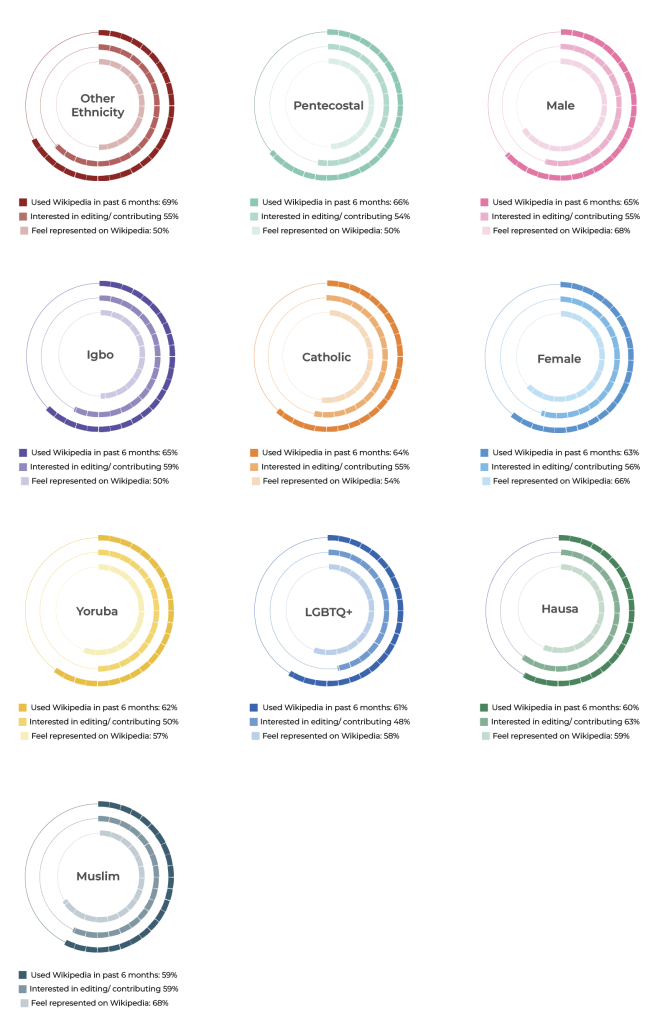
Usage and Awareness
- Overall, there is high brand awareness of Wikipedia in Nigeria
- Wikipedia recorded an overall high brand awareness at 92%, closely behind Google and YouTube.
- Wikipedia awareness was primarily driven by the Yoruba and Igbo speaking communities
- There is a relatively high use of Wikipedia in Nigeria (median at 64%)
- Tech, business, and science are the key topics communities read about on Wikipedia
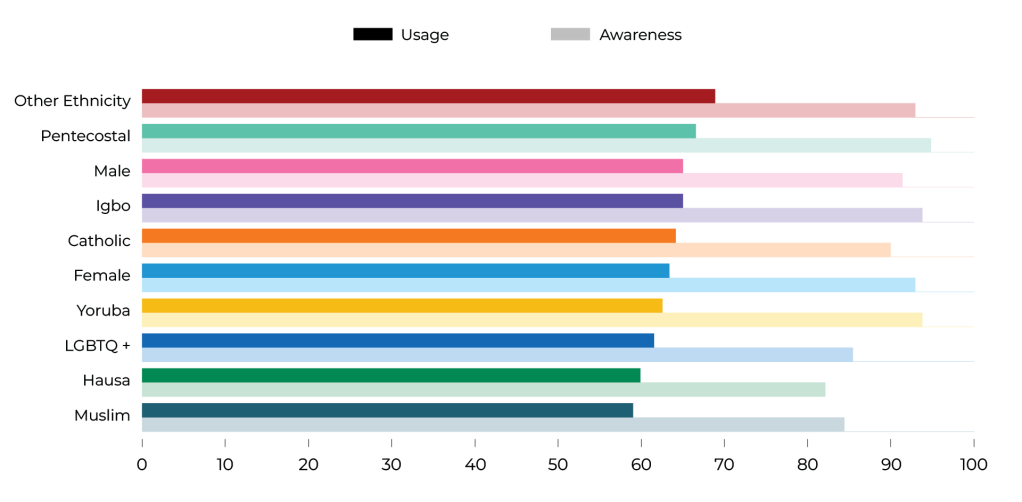
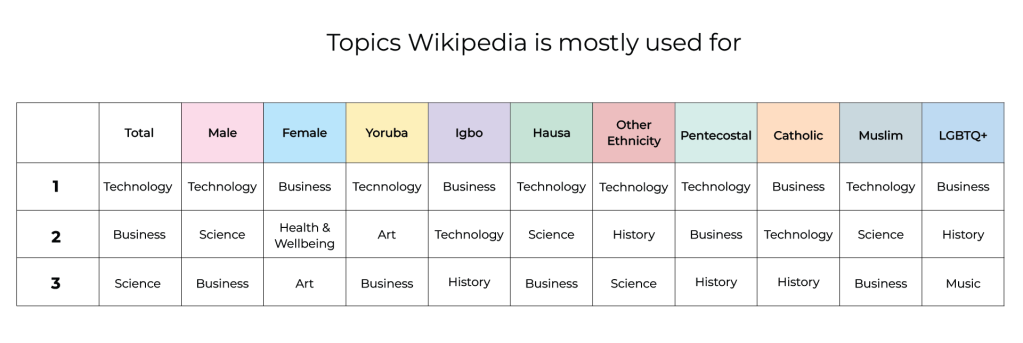
Perception and Representation
- Nigerians are more likely to feel their ethnicities and communities are under-represented on Wikipedia
- Igbo and smaller ethnic communities feel less represented on Wikipedia compared to general local media
- LGBTQ+ people feel less represented on Wikipedia compared to general local media
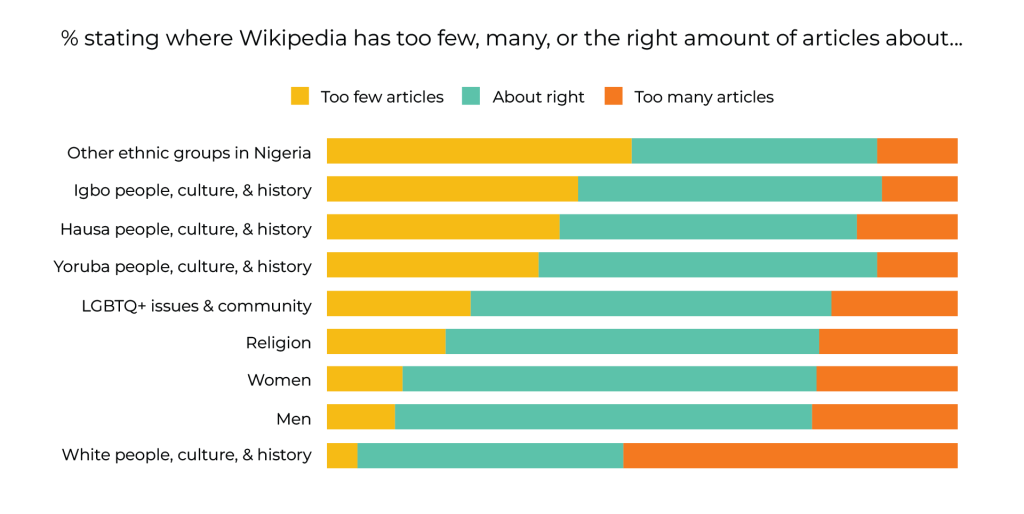

Editing
- There is an even interest to edit and contribute to Wikipedia across all communities in Nigeria
- The top three drivers are being part of an initiative that helps the society, interest to share knowledge, and to gain editing experience
- Lack of editing skills, lack of time, and not knowing Wikipedia is editable rank high among barriers to editing
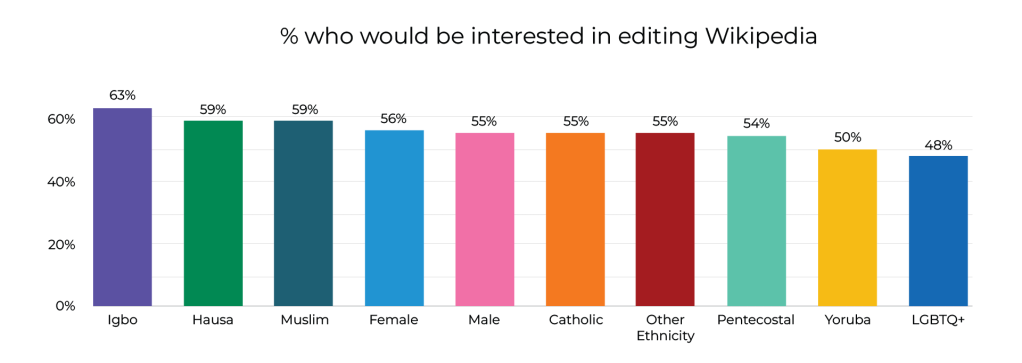
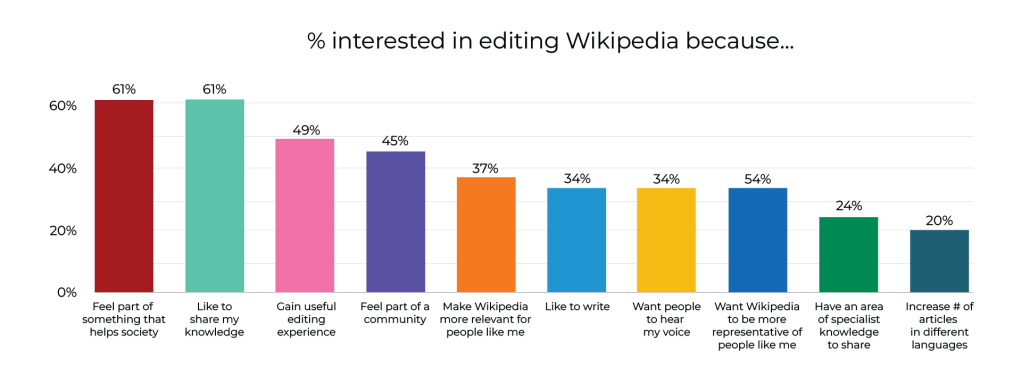
See the complete report
Help us unlock the world’s knowledge.
As a nonprofit, Wikipedia and our related free knowledge projects are powered primarily through donations.
Donate now
Contact us
Follow

Wikimedia Foundation’s Accreditation to World Intellectual Property Organization Blocked for a Fourth Time by China
Yesterday, the Wikimedia Foundation, the nonprofit that hosts and supports Wikipedia and other Wikimedia projects, was again denied accreditation as a permanent observer to the World Intellectual Property Organization (WIPO).

Wikimedia Foundation statement on volunteer processes on reliable sources
There has been recent media coverage regarding a decision by Wikipedia’s volunteer community on the reliability of the Anti-Defamation League as an encyclopedic source in specific subject areas. In an effort to promote better understanding of how Wikipedia works, the Wikimedia Foundation has issued a statement.